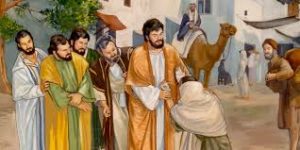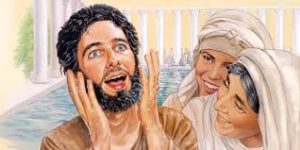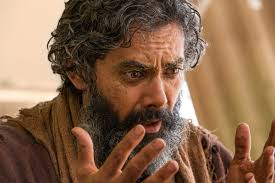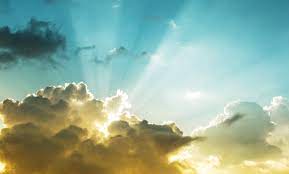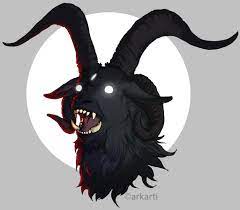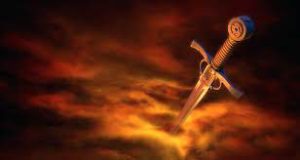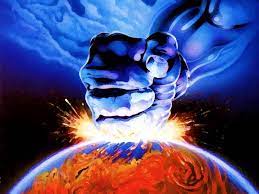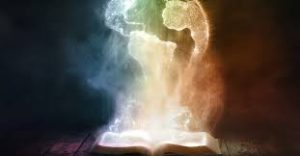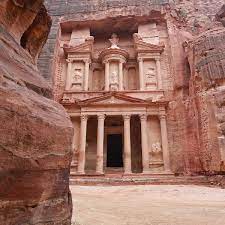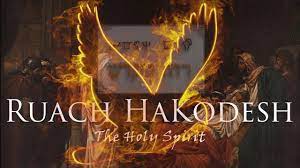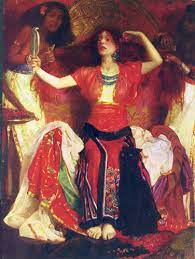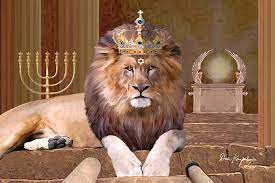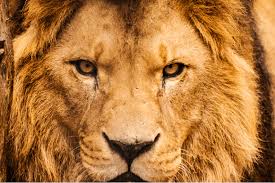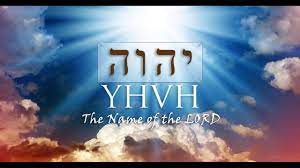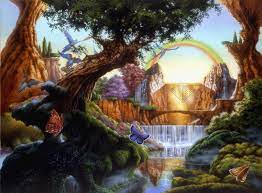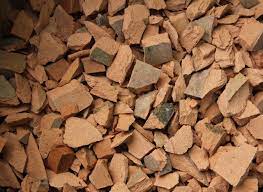Gm – The Highway of Holiness Will Be There 35: 8-10
The Highway of Holiness Will Be There
35: 8-10
The highway of holiness will be there DIG: Where will this highway be? Who will be excluded from it? Why? Who will be able to walk on it? Why? Where will this Way of Holiness take those who walk on it? What will they be doing? What will they be wearing? What will their mood be?
REFLECT: Jesus said: I am the way and the truth and the life. No one comes to the Father except through Me (John 14:6). What insight does this give you into 35:8? How are you doing on your Highway of Holiness: (a) Cruising on auto-pilot? (b) Running on empty? (c) Stuck on the side of the road? (d) Still trying to find the on ramp? What will it take for you to get on, and stay on, that Way?
During the second half of the Great Tribulation, the earth and all those who lived on it were in distress. The opening of the seven seals (Revelation 6:1 to 8:1), the sounding of the seven trumpets (Revelation 8:2 to 11:19), and the pouring out of the seven bowls (Revelation Chapters 15 and 16), made life chaotic. Travel was at best difficult and at worst impossible. The wrath of God was being poured out on an unbelieving world. But in contrast to that, travel will be easy and joyful during the Millennial Kingdom (Revelation 20:1-6).

Righteous pilgrims will once again travel to Jerusalem. They will go on a highway known as the Way of Holiness, for it will lead to God’s City where God’s people will follow His ways. The highway is exactly what it says: a causeway that will be raised above the surrounding countryside so that it is unmistakable. Earlier, ADONAI talked about other highways that would also be raised up, when He said: I will turn all My mountains into roads, and My highways will be raised up (49:11). So, it seems that while the Highway of Holiness will be the main thoroughfare on the way to Zion, there will be others as well. Evidently the purpose of these other raised highways will be to take people to the main Highway. And a highway will be there; it will be called the Way of Holiness (35:8a). There is going to be a highway called the Highway of Holiness. It is going to come through the desert that will be in full bloom. But you have to be eligible to walk on this highway. It will not be for the morally wicked person who knowingly chooses to oppose God’s truth, but only for the redeemed (see the commentary on Exodus, to see link click Bz – Redemption). God never reduces His standards to match the weaknesses of His people; He raises His people to the height of His high holy standards.
Redeemed . . . ransomed, or the verb to redeem makes its first appearance here in Isaiah. The Hebrew word ga’al stresses the redeemer, his relationship to the redeemed, and his intervention on their behalf. The participle, go’el, is the technical term for the next-of-kin who has the right to take his helpless relatives needs as if they were his own (Leviticus 25:25; Numbers 5:8). The place of the go’el was something no other would dare usurp (see the commentary on Ruth Ba – Bo’az Obtains the Right of Redemption). It was, however, a right rather than an absolute duty. It speaks here, therefore, of the LORD as the only one who can redeem His people. It is He who identifies with them as their Next-of-Kin, taking their needs as if His own, the Mighty in the place of the helpless, paying their price (Leviticus 27:13, 19 and 31).
The unclean or wicked will not journey on it, because it will be for those who walk in that Way (35:8b; also see Acts 9:2, 24:14). There will be millions and millions of people who are not saved living in the Messianic Kingdom. For a thousand years the lost will reproduce and enjoy the benefits of living in a world devoid of crime, deceit and evil. They see firsthand the results of salvation. But this highway will not be for them, because it leads to the King. It leads to Zion where the Messiah will reign and rule in the Most Holy Place (see Db – The Nine Missing Articles in Messiah’s Coming Temple). These lost souls will have until their hundredth birthday to accept Yeshua as the Messiah or die (65:20). As a result, wicked fools will not walk on it (35:8c) until they are saved.
The relationship of the animal kingdom will be changed during the thousand-years. The wolf will live with the lamb, the leopard will lie down with the goat, the calf and the lion and the yearling together. The cow will feed with the bear, their young will lie down together, and the lion will eat straw like the ox (11:6-7). Therefore, during Messiah’s reign, no violent lion will be there, nor will any ferocious beast get up on it, they will not be found there (38:9a). Although the highway will pass through lush watered regions where wildlife would be expected to thrive, none of it will be of the vicious sort. They will not impede anyone’s travel on the highway.
But only the righteous of the TaNaKh will walk there (see the commentary of Revelation Fj – My Chosen People Will Inherit My Mountains), and the ransomed of ADONAI will return (35:9b-10a). The end of the Highway of Holiness is Zion, the Holy City. And because of the LORD’s provision and protection, gladness will permeate Jerusalem. They will enter Zion with singing; everlasting joy will crown their heads. Gladness and joy will overtake them, and sorrow and sighing will flee away (35:10b). Isaiah later quotes this verse, saying: The ransomed of the LORD will return. They will enter Zion with singing and everlasting joy will crown their heads (51:11). This will be a time when the people of God can be set free from their own sins and live with God eternally. In short, this is the hope of biblical faith.
In the Millennial Kingdom, God’s people will once again be involved in certain aspects of TaNaKh formal worship (Zechariah 14:16-19 and Ezeki’el 40-44). Since righteousness and a desire to do the will of God will be esteemed, the people will willingly follow His instructions for worship. Also, the redeemed will be indwelt by the Holy Spirit (Ezeki’el 36:24-28). The ransomed of the Lord will have everlasting joy, with no sorrow, for they will realize what God has done for them. They will rejoice that He has saved them from the destruction of the antichrist and brought them to peace, prosperity, and the fulfillment of His promises.126 These verses are a simple summary of the prophecies of Isra’el’s regathering, return, and restoration. And with these verses the segment of Chapters 13 to 35 reaches its climactic conclusion.
In Chapters 34 and 35, Isaiah sought to answer the question, “Do I trust God or the world?” Ahaz had proved that the nations could not be trusted. But what about God? Could He be trusted? These chapters leave us with the same conclusion as Chapters 11 and 12. Yes. God, who is Master of the nations, is utterly trustworthy. But could He deliver Judah from Assyria? This is what Chapters 36 to 39 are all about.



